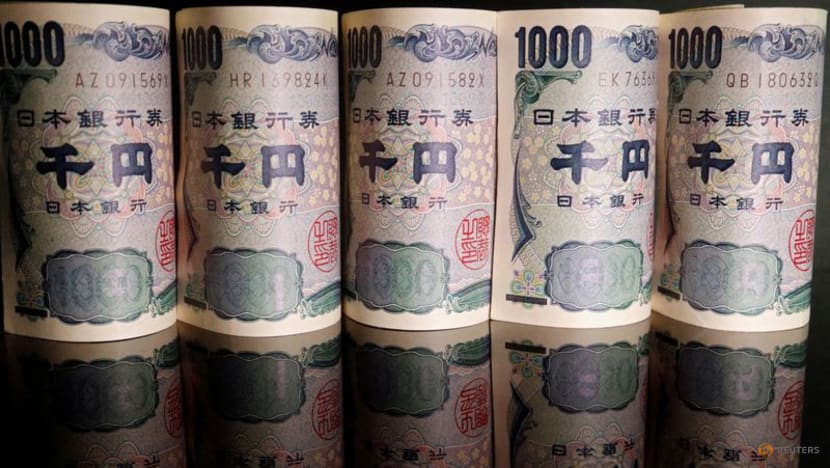Japanese yen may strengthen against the Singapore dollar next year: Analysts
The Japanese yen sank lower against the Singapore dollar this week, after reaching its weakest since 1985 earlier this month.

Banknotes of Japanese yen are seen in this illustration picture taken Sep 23, 2022. (File photo: Reuters/Florence Lo)

This audio is generated by an AI tool.
SINGAPORE: The Japanese yen is unlikely to weaken further and could start recovering next year, said analysts after the currency hit its weakest level against the Singapore dollar since 1985.
The recovery could be driven by government intervention or shifts in the Japanese central bank’s policy stance, analysts told CNA.
In the meantime, one way for Singapore consumers to benefit most directly from the weak yen is to go for a holiday in Japan.
“A stronger currency implies cheaper imports of goods and services. The impact would probably be most pronounced on tourism as a strong currency points to more bang for your buck,” said Mr Nicholas Chia, a foreign exchange and macro strategist at Standard Chartered Bank.
“Year-end travellers from Singapore will … find Japan a very attractive travel destination,” added Ms Carol Lye, portfolio manager and senior research analyst at Brandywine Global Investment Management.
Related:
About a year ago, S$1 could get you around 101 yen. Now, the same amount can buy more than 111 yen.
Mr Chia said data on Tuesday (Nov 14) showed the yen was at its lowest against the Singapore dollar since 1985. The Japanese yen was revalued in 1985 after the Plaza Accord was signed with other countries, with the aim of depreciating the US dollar.
He sees the Singapore dollar staying strong against the Japanese yen, but other analysts spot the potential for the trend to reverse slightly.
Mr Chang Wei Liang, a foreign exchange and credit strategist at DBS Bank, said he expects the currency pair to stop weakening at around 110 to 112 yen per Singapore dollar, before moving towards 105 yen per Singapore dollar by the middle of next year.
DIVERGING POLICIES
The Japanese yen has been weakening against the currencies of major economies because the Bank of Japan kept interest rates low while other central banks aggressively hiked interest rates.
Higher interest rates typically attract money because deposits in the country’s currency would earn more interest. For example, investors who buy a 10-year government bond in the US can earn more than 4 per cent in interest, while a similar bond in Japan would yield less than 1 per cent.
Singapore does not set interest rates, but the Monetary Authority of Singapore (MAS) tightened monetary policy and allowed the currency to appreciate last year. It held rates steady this year.
Japan kept a loose monetary policy and lower rates because it has a different set of problems from other countries.
“While the rest of the world has been grappling with inflationary pressures, Japan has been mired in deflation as a legacy of its ‘lost decades’, and only now are we seeing some positive signs of more entrenched inflation in Japan's context,” said Mr Chia of Standard Chartered Bank.
Those signs of inflation in Japan may lead to the central bank changing its stance, while the Federal Reserve in the US held rates steady this month.
Ms Lye of Brandywine Global Investment Management said Japan’s central bank may tighten monetary policy next year.
“That may cause the yen to appreciate in a more meaningful manner,” she said.
Related:
Mr Sim Moh Siong, currency strategist at Bank of Singapore, said other major central banks are near the end of their rate-hike cycle, while Japan has not even started.
“There is the chance that the Bank of Japan might play catch-up going into next year because inflation is rising, the economy is starting to do better and wage growth is likely to be firmer,” he said.
“It hasn’t panned out, but I think this is a strong possibility for next year.”
In the short term, intervention by the government could limit the yen’s weakness.
“We now see a non-trivial chance of JPY buying intervention by the Japanese government, given its historical intervention behaviour and rhetoric from the finance minister warning about excessive JPY moves,” said Mr Chang of DBS.
On Tuesday, Japanese Finance Minister Shunichi Suzuki told reporters that the government would take necessary action to respond to moves in the currency.















